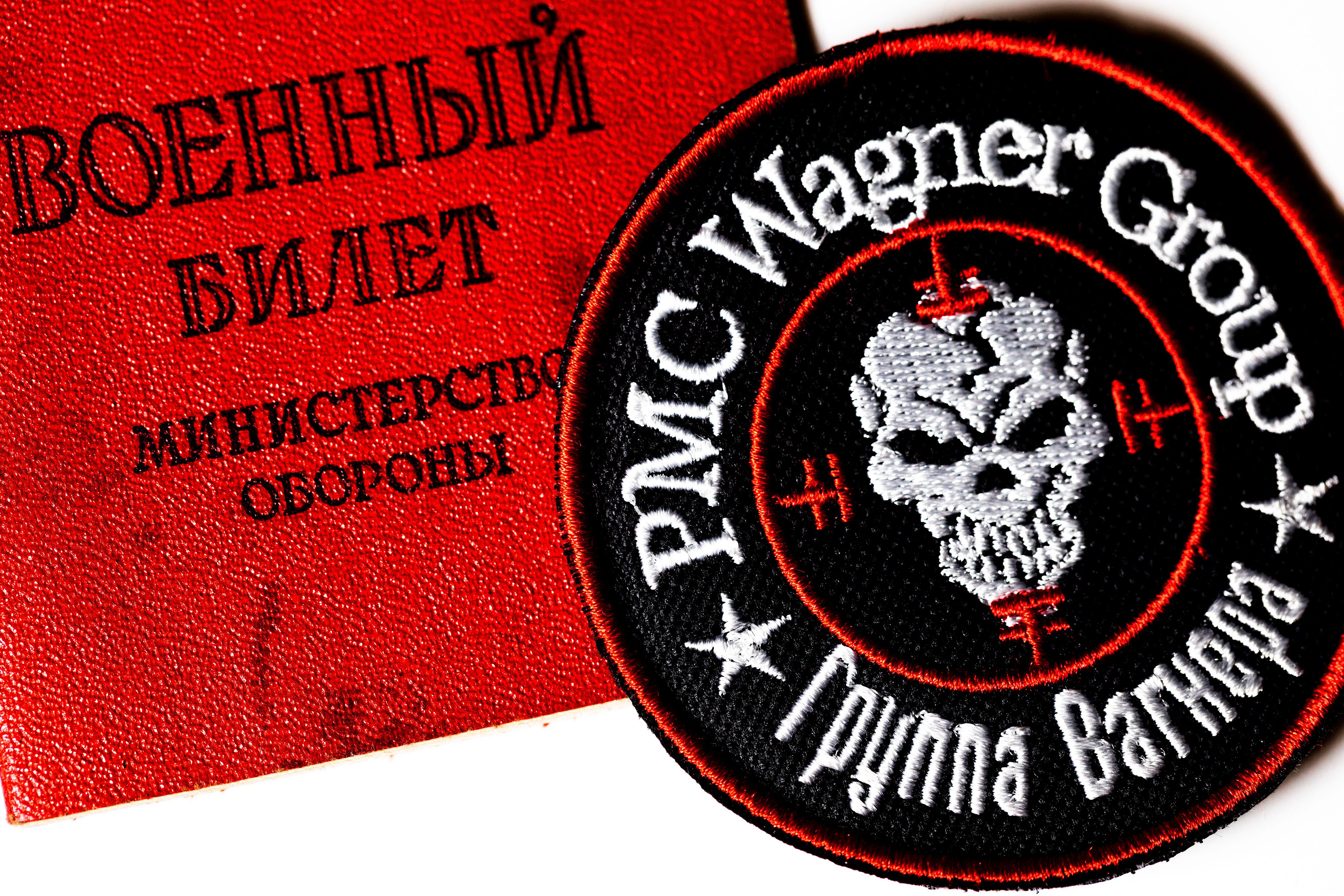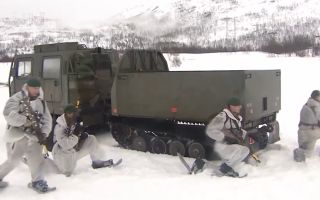
Wagner Group to recruit fewer convict fighters amid 'significant tensions' with Kremlin, UK says

Recruited prisoners are less likely to be sent to fight in Ukraine due to tension between the Wagner Group and the Russian Ministry of Defence, the UK says.
The latest Defence Intelligence update from the Ministry of Defence (MOD) said: "Competition between factions in the Russian elite is likely to be partially responsible for the reduced supply of convicts."
The Wagner Group is a Russian mercenary force that has been supplying private troops to Ukraine, partly made up of convicts.
- Russia: What is the Wagner Group?
- Ukraine: Putin hopes for Russian victory by 'outlasting the West'
- F-16: How the US-made fighter jets could aid Ukraine in its fight against Russia
It is thought that Russia can no longer rely on "human wave-style assaults" by the Wagner convict fighters as tensions mount between the mercenary paramilitary group and the Russian Ministry of Defence.
Human wave attacks have been likened to First World War-style tactics in which unprotected and densely concentrated infantry formations aim to storm an enemy line – a tactic often thought of as using soldiers as 'cannon fodder' during World War One.
Defence Secretary Ben Wallace, speaking earlier as he refused to rule out sending jets to Ukraine in the future, pointed to how Russia was using such tactics against Ukrainian positions.
Speaking in Portsmouth alongside Australian counterparts, Mr Wallace said Russian forces were resorting to First World War-style "human wave" tactics against Ukrainian positions.
He added: "They are resorting to First World War-level style of attacks, with the subsequent casualties to match."
The Wagner Group is controlled by Yevgeny Prigozhin, an oligarch with reportedly close links to President Putin.
According to the MOD update, the peak of Wagner Group's reliance on convict recruitment was probably between the summer and autumn of 2022.
The Russian Federal Penal Service (FSIN) figures released on 31 January 2023 reported a national penal population of 433,000.
From September to November 2022, the Russian prison population decreased by 23,000, the major drop most likely being due to Wagner Group recruitment, the MOD said.
Compared to the period between autumn and winter, the prison population decreased by 6,000 people, indicating a significantly smaller decrease than between summer and autumn.
The MOD update also suggested that the Russian military has become less reliant on such "human wave style assaults" by Wagner Group mercenaries in areas of strategic importance.
"Separately, anecdotal evidence from Ukrainian combatants over the last ten days suggests a reduced Russian reliance on human wave style assaults by Wagner convict fighters in key sectors," the Defence Intelligence report said.
Since September 2022 the Russian forces have significantly increased in manpower due to partial mobilisation.
In October, Russian defence minister Sergei Shoigu reported to President Putin on the completion of partial mobilisation in Russia.
The minister said that the set task of recruiting 300,000 people had been fulfilled and no mobilisation tasks were planned.
Russian President Vladimir Putin in December said a new wave of conscription would be pointless as currently only 150,000 of previously mobilised soldiers are deployed in Ukraine, with the rest in training or serving in Russia.
Kyiv intelligence reports have warned that Russia may be preparing to mobilise an extra half a million conscripts in 2023.








